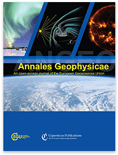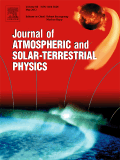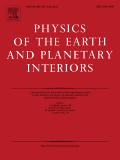
ANNALES GEOPHYSICAE
metrics 2024
Pioneering Insights into Earth and Planetary Sciences
Introduction
ANNALES GEOPHYSICAE is a distinguished open access journal published by COPERNICUS GESELLSCHAFT MBH, renowned for its contributions to the field of geophysics and related disciplines. Since its inception in 1996 as an open access journal, ANNALES GEOPHYSICAE has provided a vital platform for researchers to disseminate their findings covering a wide array of topics within Astronomy and Astrophysics, Atmospheric Science, and Earth and Planetary Sciences. The journal enjoys a commendable reputation, evidenced by its impressive 2023 category quartiles, ranking Q1 in Earth and Planetary Sciences (miscellaneous) and Q2 in several other relevant categories, reflecting its significance in the global research community. Based in Germany and accessible to a diverse audience, ANNALES GEOPHYSICAE serves as an essential resource for academics, practitioners, and students alike, striving to foster advancements in our understanding of geophysical phenomena and encouraging collaboration across disciplines.
Metrics 2024
 0.65
0.65 1.70
1.70 1.80
1.80 105
105Metrics History
Rank 2024
Scopus
IF (Web Of Science)
JCI (Web Of Science)
Quartile History
Similar Journals

Journal of the Korean Astronomical Society
Advancing Astronomy: Unveiling the Universe's MysteriesWelcome to the Journal of the Korean Astronomical Society, an esteemed publication dedicated to advancing the fields of Astronomy and Astrophysics as well as Space and Planetary Science. Established in 1993 and under the reputable auspices of the Korean Astronomical Society, this journal serves as a vital platform for researchers and scholars from South Korea and around the globe to disseminate innovative findings and critical insights. With a commendable Q2 ranking in Astronomy and Astrophysics and a Q3 ranking in Space and Planetary Science, this journal is positioned among the influential voices in its fields, fostering collaboration and knowledge exchange. The journal's rigorous peer-review process ensures that published works contribute significantly to ongoing discussions and developments in astronomical research. While currently not an open-access journal, it remains accessible to the academic community, encouraging readers to stay abreast of the latest advancements in the sciences that elucidate the universe's complexities. Join us in exploring the cosmos through cutting-edge research and scholarly discussion that propels the field forward.

EXPERIMENTAL ASTRONOMY
Pioneering Experimental Techniques for Cosmic DiscoveryEXPERIMENTAL ASTRONOMY, published by Springer, stands as a pivotal journal in the fields of Astronomy and Astrophysics as well as Space and Planetary Science. With an impressive Scopus ranking and a Q2 category as of 2023, the journal is recognized for its impactful contributions to experimental techniques and observations in astronomy. Covering a broad spectrum of topics from cosmic phenomena to planetary exploration, it serves as a vital platform for researchers, professionals, and students to disseminate and discuss innovative ideas and findings. The journal has evolved through various convergence years since its inception in 1989 and continues to thrive, fostering an environment for academic pursuit and collaboration. Though not an open-access journal, its rigorous peer-review process ensures high-quality publications that are essential for advancing the scientific community's understanding of the universe.

JOURNAL OF ATMOSPHERIC AND SOLAR-TERRESTRIAL PHYSICS
Exploring the Dynamics of Our Atmosphere and BeyondJournal of Atmospheric and Solar-Terrestrial Physics, published by Pergamon-Elsevier Science Ltd, stands as a pivotal academic resource in the realms of Atmospheric Science, Geophysics, and Space and Planetary Science. With an ISSN of 1364-6826 and an E-ISSN of 1879-1824, this journal encompasses a robust collection of research findings and reviews that address the intricacies of atmospheric processes and solar-terrestrial interactions. The journal has shown consistent academic performance, earning commendable rankings in 2023, including Q3 in Atmospheric Science and Q2 in Geophysics, reflecting its importance for scholarly communication and advancement in these fields. Spanning an impressive convergence of research from 1997 to 2024, it aims to foster interdisciplinary collaboration and inspire innovations among researchers, professionals, and students. Although it currently does not offer open access, the journal is committed to disseminating high-quality content that continues to drive forward our understanding of complex environmental phenomena.

Advances in Astronomy and Space Physics
Pioneering Research at the Frontier of Space Science.Advances in Astronomy and Space Physics is an esteemed journal dedicated to the exploration and dissemination of research in the expansive fields of astronomy and space science. Published by Taras Shevchenko National University of Kyiv, this journal provides a platform for researchers, professionals, and students to share groundbreaking studies and innovations. With an ISSN of 2227-1481, it covers a wide range of subjects including astrophysics, planetary sciences, and space exploration technologies, thereby fostering interdisciplinary collaboration. Although not an Open Access journal, it maintains a commitment to high-quality, peer-reviewed content that contributes significantly to the advancement of scientific knowledge. The journal's mission is to promote sustainable practices in space research while also exploring the implications of discoveries on Earth and beyond. By maintaining rigorous publication standards, Advances in Astronomy and Space Physics aims to serve as a critical resource for those involved in the ever-evolving study of our universe.

Weather
Elevating Understanding of Meteorological PhenomenaWeather is a prestigious academic journal published by WILEY, specializing in the field of Atmospheric Science. Since its inception in 1946, the journal has emerged as a key resource for researchers, professionals, and students seeking to deepen their understanding of meteorological phenomena and climate dynamics. Weather is recognized for its robust impact within the scientific community, boasting a 2023 Scopus ranking of 96 out of 148 in the Earth and Planetary Sciences category, placing it comfortably within the Q2 category. Although it does not offer open access options, the journal is committed to publishing high-quality, peer-reviewed articles that advance the knowledge base of atmospheric sciences up to 2024. Through its diverse range of research, reviews, and case studies, Weather continues to play a vital role in facilitating discussions and discoveries in this essential field of study.

SPACE WEATHER-THE INTERNATIONAL JOURNAL OF RESEARCH AND APPLICATIONS
Navigating the Challenges of Cosmic PhenomenaSPACE WEATHER: THE INTERNATIONAL JOURNAL OF RESEARCH AND APPLICATIONS, published by the American Geophysical Union, is an influential journal dedicated to advancing the understanding of space weather phenomena and their applications. With an E-ISSN of 1542-7390 and a commendable Q2 ranking in the Atmospheric Science category for 2023, this journal serves as a vital platform for researchers, professionals, and students alike. The journal intersects multiple disciplines, including Earth and planetary sciences, focusing on how solar and cosmic phenomena affect the Earth's atmosphere and space environment. With its convergence years extending from 2005 to 2024, SPACE WEATHER aims to publish high-quality research that contributes to our understanding of these critical areas, fostering new ideas and technologies. Its strategic position in the Scopus ranking, being in the 69th percentile, highlights its integral role in the academic community, driving innovation and collaboration in this essential field.

Frontiers in Astronomy and Space Sciences
Illuminating the Cosmos with Groundbreaking ResearchFrontiers in Astronomy and Space Sciences is a leading open access journal published by FRONTIERS MEDIA SA, based in Switzerland. Since its inception in 2015, this journal has provided a dynamic platform for researchers, professionals, and students to disseminate their findings across a wide spectrum of topics within the field of astronomy and astrophysics. With an impressive 2023 Impact Factor reflecting its relevance and contribution to the scientific community, it ranks in the Q2 category in Astronomy and Astrophysics, demonstrating a solid reputation among peers. The journal's commitment to open access ensures that all published research is freely available, fostering greater collaboration and knowledge sharing among astronomers worldwide. With a diverse range of articles spanning from theoretical investigations to observational studies, Frontiers in Astronomy and Space Sciences is an essential resource for anyone seeking to explore the wonders of the universe and share innovative ideas that push the boundaries of our understanding.

COSMIC RESEARCH
Unveiling Cosmic Insights Through Rigorous ScholarshipCOSMIC RESEARCH is a prestigious academic journal dedicated to advancing the field of space science, particularly within the domains of aerospace engineering, astronomy, and planetary science. Published by MAIK NAUKA/INTERPERIODICA/SPRINGER, this journal has been a significant contributor to the scholarly discourse since its inception in 1968, with converged years showing robust publication activity until 2024. With a Q4 category ranking in various disciplines, including aerospace engineering, astronomy, and space science, the journal serves as a platform for disseminating innovative research and comprehensive reviews. Although not currently offering open access, COSMIC RESEARCH is renowned for its rigorous peer-review process, ensuring that only high-quality research is shared with the academic community. The journal's ISSN is 0010-9525 and its E-ISSN is 1608-3075. Researchers, professionals, and students alike can benefit from the insights and findings presented in this journal, making it an essential resource for anyone involved in the exploration of cosmic phenomena.

SOLAR SYSTEM RESEARCH
Navigating the Complexities of Our Solar SystemSOLAR SYSTEM RESEARCH, published by Pleides Publishing Inc, offers a comprehensive platform for the exploration and dissemination of scientific knowledge in the fields of Astronomy, Astrophysics, and Space and Planetary Science. With its origins tracing back to 1969, this journal provides a vital resource for researchers and professionals seeking to deepen their understanding of the solar system's complexities, including planetary formation, extraterrestrial geology, and the dynamics of celestial bodies. Although categorized in the Q4 quartile for both relevant disciplines, SOLAR SYSTEM RESEARCH remains committed to publishing high-quality research that contributes to advancing contemporary scientific discourse. Dedicated to fostering collaboration and innovation, the journal is indexed in Scopus and adheres to rigorous academic standards, making it an essential resource for students and professionals alike pursuing the latest developments in solar system studies.

PHYSICS OF THE EARTH AND PLANETARY INTERIORS
Charting New Territories in Planetary SciencePHYSICS OF THE EARTH AND PLANETARY INTERIORS, published by Elsevier, has been a cornerstone of interdisciplinary research since its inception in 1967. With a strong focus on the intricate processes governing our planet and other celestial bodies, this journal plays a crucial role in advancing knowledge in Astronomy and Astrophysics, Geophysics, and Space and Planetary Science. The journal holds notable impact factor rankings, placing it in the Q1 category for Physics and Astronomy (miscellaneous) and excelling across numerous related fields, including a percentile ranking in the 77th for Physics and Astronomy. It not only caters to established researchers but also serves as a vital resource for students and professionals seeking to remain at the forefront of earth and planetary sciences. Although it does not currently offer open access, the comprehensive and rigorously peer-reviewed articles provide invaluable insights into geophysical phenomena, planetary exploration, and the underlying physics of planetary systems. Be part of the ongoing discourse that shapes our understanding of the universe by engaging with the latest research published in this esteemed journal.